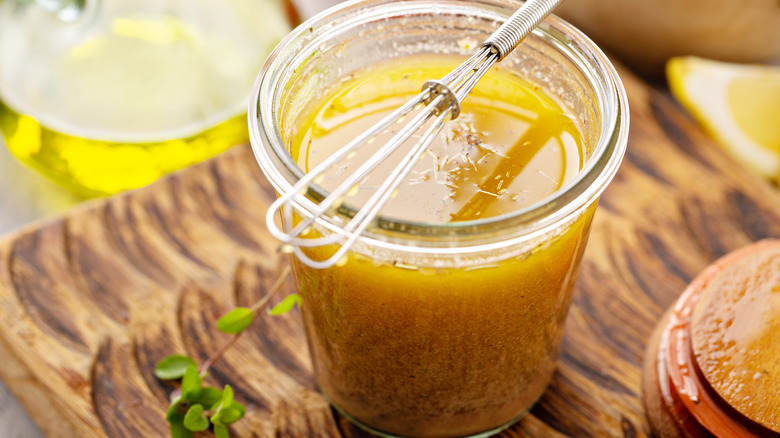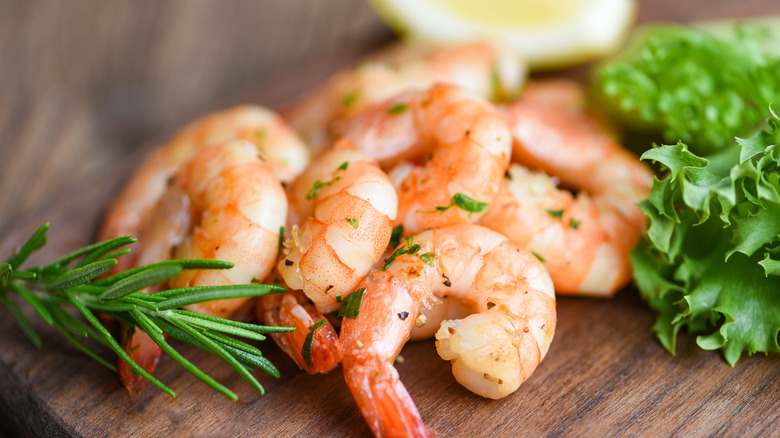The Biggest Mistake To Avoid When Marinating With Citrus
All citrus fruits — lemons, grapefruit, oranges, and limes — are perfect for marinating, whether you want to add flavor to meats, poultry, veggies, or fruits. Citrus peels are full of flavorful volatile oils that add interest and wonderful aroma, according to ResearchGate, and the juice adds sharpness and great fresh flavor. The citrus works with the dishes beautifully, complementing their flavors and adding brightness.
Everyone knows that lemons and limes are delicious with chicken and steak. There are so many recipes for meat and poultry marinades that use all kinds of citrus fruit, but you can't just zest and juice a lemon or lime and add the meat. There are some things you need to know, and limitations to this type of preparation. How can there be mistakes? What is the biggest mistake to avoid when marinating with citrus? The flavors are complementary. The acids in the fruits make meat and poultry tender, so what's going on?
Watch the clock
For beginning cooks, it may seem that the longer you can leave a food in a marinade, the better it will be. It should soak up more flavor and be even more tender, right?
Wrong. If you leave food, especially more tender meats like chicken, turkey, seafood, and shellfish in citrus juices too long the exterior will get mushy, according to America's Test Kitchen. Citric acid is a powerful tenderizer. Over time, it will really break down the fibers in the outside layer of the meat and the texture will be ruined. You do not want to eat chicken with a mushy exterior and dry interior. Mistake everyone makes with their marinade include marinating longer, which will not tenderize the meat all the way through.
So, follow the recipe timing carefully. Generally speaking, according to Food Network, chicken should be marinated anywhere from two hours for a citrus marinade to overnight for less acidic mixtures. According to What's Cooking America, fish fillets and shrimp only need 15 to 30 minutes in a marinade, and scallops about five minutes. You can marinate steaks, roasts, and chops for two hours to overnight. Once you mix the marinade and add the meat, set your timer. And remember that any perishable food needs to be in the fridge if you are marinating it for two hours or more.
Marinate those meats
Now that you know you have to put a time limit on citrus marinades, it's time to put that knowledge to work. When you are making an acidic marinade, whether you are using citrus juices, buttermilk, yogurt, or sour cream, the acid will react with metal, according to Food Network. So, use a plastic bowl, container, or a heavy duty food storage bag. Never reuse a marinade that has touched raw meat, either. It needs to come to a full boil before you can use it as a sauce, per the United States Department of Agriculture.
Try grilled, dilled lemon chicken with honey and Dijon, which is marinated in lemon juice, honey, and mustard for an hour before it's cooked. Sizzling steak fajitas are spicy and flavorful, with lemon juice, garlic, and Worcestershire sauce in the marinade. Lemon herb shrimp, made with thyme and oregano, is delicious over rice. And citrus-marinated grilled salmon with tabbouleh salad is perfect for entertaining.


